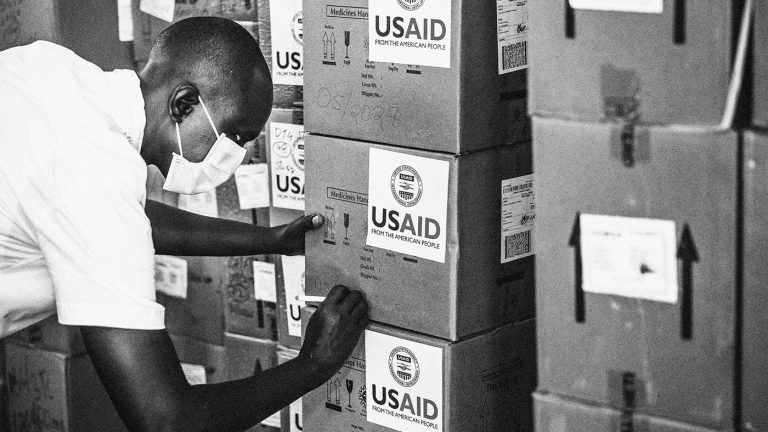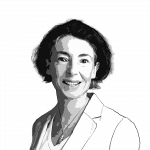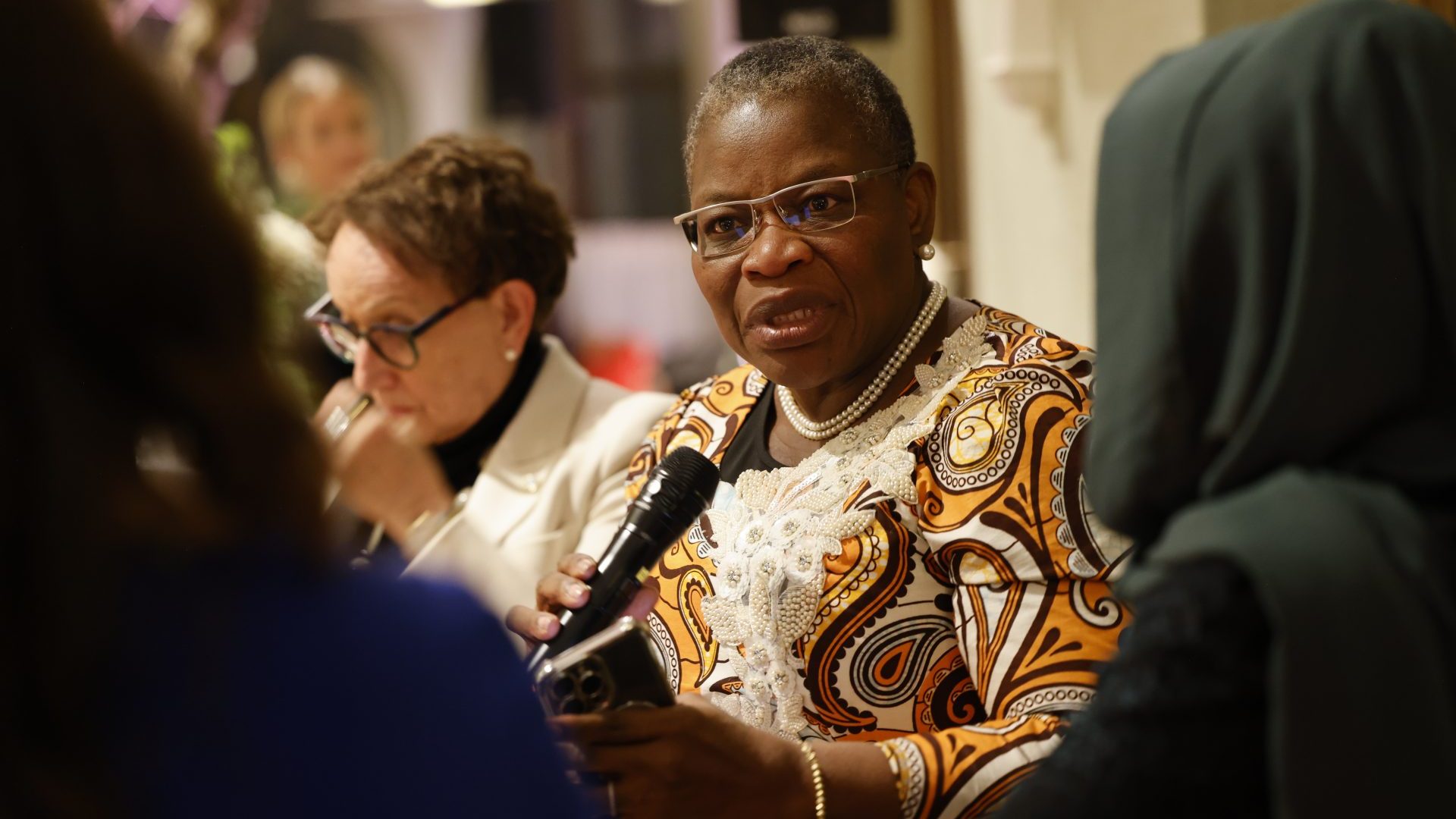I was recently invited by Oby Ezekwesili to participate in the Big Ideas Platform 2025 in Abuja, Nigeria. “Auntie Oby”, as she is known to many, is a force of nature. And when she asks you to do something, you have to say yes!
A former Nigerian presidential candidate, vice president of the World Bank, and co-founder of the anti-corruption organisation Transparency International, Oby established #FixPolitics “in recognition of the dismal performance of public leadership in Africa”, which has left Africa lagging behind other regions “despite its wealth of natural and human resources”.
Central to the poor performance is politics, “specifically a culture of leadership that inherently subverts the public good by elevating personal and parochial interests above the collective well-being of citizens.”
The challenges facing Africa are immense – poverty, conflict, slow productivity growth, inadequate infrastructure, stagnating economies, corruption and poor governance. By 2050, a quarter of the world’s population will be African (2.5 billion people, 400 million of whom will be Nigerian, making it the third most populous country in the world after India and China).
Rising to the challenge, Oby launched the School of Politics, Policy & Governance (SPPG) in 2021 to build a new generation of African leaders with the values, skills and knowledge to take the continent forward. And since its inception, I’ve been a guest lecturer.
Hosted in the Shehu Musa Yar’Adua Centre (named in honour of the Nigerian civil war hero, politician and prisoner of conscience who died in custody in 1997), the theme of this year’s Big Ideas Platform – SPPG’s annual event – was, surprisingly, “Brain Health and Mental Wellbeing”. Seated in the front row of the packed auditorium, I listened intently to Dr Andrew Nevin, the Inaugural Director of the Brainomics Venture at the Center for BrainHealth, University of Texas at Dallas, describe how the average person checks their phone 150 times a day; that most people are only able to work for 3 minutes without interruption or switching tasks; that it takes 25-30 minutes for most people to resume focus on a task after interruption; and how all this reduces productivity. His main advice: stop multi-tasking!
Rather than focusing on the high rates of mental illness, social stigma, and limited access to services, the event was more concerned with how to improve well-being, decrease distractions, and increase productivity.
Kininso Koncepts took to the stage, bringing to life the power of collective responsibility with their performance “Imagine Action.” Through theatre, they told the story of a community that stopped waiting for outsiders to help them, took responsibility into their own hands, and succeeded in coming together to solve their problems. It was acknowledgement that Africans have agency – and need to work together and take intentional action for Africa’s future.
The drama resonated with Imam Muhammad Nurayn Ashafa and Pastor James Movel Wuye. Over thirty years ago, amid rising tensions between Muslims and Christians in Kaduna State, they had been the leaders of opposing religious militias. Wuye’s group killed Ashafa’s spiritual teacher and two cousins. Ashafa’s boys chopped off Wuye’s right hand. Both had been intent on revenge.
The pastor, pointing to his prosthetic hand, spoke openly about how he had planned for revenge. But it was a journalist who had swayed him from this path, bringing him and the imam together, grabbing both their arms, and urging them to talk. The pastor went through a process which involved the “deprogramming of the mind”, the “reprogramming of mindset”, and healing.
The story of their journey from vengeance to forgiveness was astonishing. Together, they had established the Interfaith Mediation Centre, dedicated to fostering Christian-Muslim dialogue, promoting religious tolerance and co-existence, training religious figures and tribal leaders to become advocates for peace, and deterring young people from violence.
Suggested Reading

Trump’s policies are already killing people
While the multilateral system may be floundering, local initiatives such as this are having success – and can inspire other communities to build their own pathways to peaceful coexistence rather than waiting for outsiders to mediate solutions.
Interestingly, during my time in Abuja, I did not hear laments or anger at the loss of USAID and international development funding. While some noted that the healthcare of the most vulnerable would surely suffer in the short term, others suggested that in the medium term it would help break Africa’s dependency on aid, would pressure African governments to seek other forms of investment especially from the private sector, which in turn could lead to improved and more accountable governance.
Tend to one’s own garden, goes the saying. Oby’s identical twin boys gave me a tour of the haven they had created just down the road from my hotel. During the pandemic, they had converted the concrete yard outside their studio into a lush jungle, a magical sanctuary in the middle of an otherwise charmless city. Those months of gardening had helped the twins articulate a life philosophy they call the “Framework,” which was captured on the three beaded bracelets they gave me that I now wear on my left wrist: Slow Down, Give Gratitude, Take Responsibility.
On my last day in Abuja, I accompanied Oby and her husband to Sunday service at the Everlasting Arms Parish of the Redeemed Christian Church of God. Dressed in a vibrant blue boubou, a flowing wide-sleeved robe gifted to me by one of Oby’s colleagues, I raised my hand aloft, sang along full-heartedly with the choir to the words broadcast down from the big screen and swayed with the congregation to Christian rock. Uplifted by the African beats and Hallelujahs, I prayed for the rise of a new generation of African leaders to grasp the continent’s potential and to harness the hustle I’d witnessed. The wellbeing of us all is going to depend on the future flourishing of Africa – and a positive mindset.
Emma Sky is director of Yale’s International Leadership Center and author of The Unravelling: High Hopes and Missed Opportunities in Iraq and In a Time of Monsters: Travels Through a Middle East in Revolt




